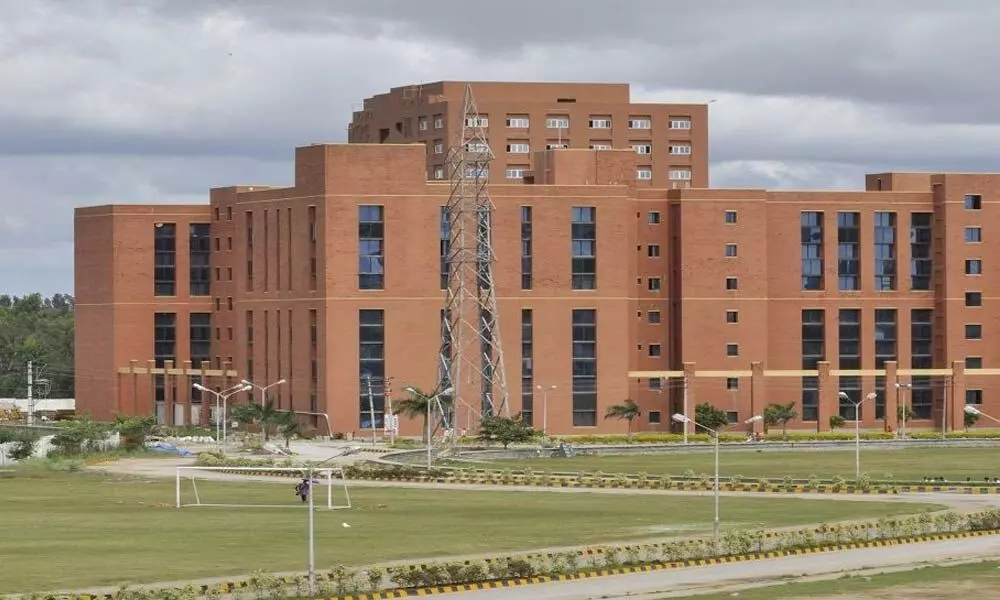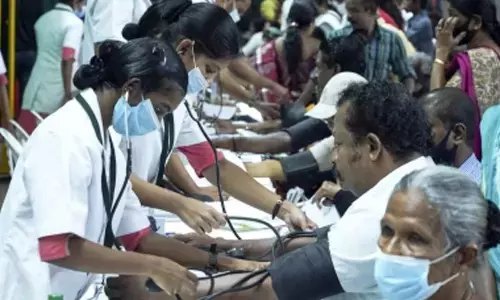Adim Premji varsity, FICCI, TISS roll out plan to generate jobs in MSME sector

Adim Premji varsity, FICCI, TISS roll out plan to generate jobs in MSME sector
In a first-of-its-kind collaboration between Azim Premji University, Federation of Indian Chambers of Commerce and Industry, and Tata Institute of Social Sciences, Mumbai, a new policy proposal for creating an Udyog Sahayak Enterprises Network (USENET) was released on Saturday
Bengaluru: In a first-of-its-kind collaboration betweenAzim Premji University, Federation of Indian Chambers of Commerce and Industry, and Tata Institute of Social Sciences, Mumbai, a new policy proposal for creating an Udyog Sahayak Enterprises Network (USENET) was released on Saturday.
The report proposes the creation of a support system that will improve Ease of Doing Business for largely informal micro and small entrepreneurs. Udyog Sahayak Enterprises will take services such as digitisation and formalisation, availing of government loans, subsidies or other benefits, ensuring compliance with local, regional, and national regulation, aiding partnership with digital marketing platforms and digital payment platforms, to the micro-entrepreneurs at their doorstep.
The report estimates that by enabling scale-up, USENET can aid in the creation of an additional one crore (10.3 million) jobs over five years going up to nearly six crore (56.9 million) over 10 years. Based on value-added per worker observed in this sector and assuming a 12% nominal rate of growth in GVA, these jobs represent an additional economic value of Rs 2,16,000 crore at the end of five years and over 19 lakh crore at the end of 10 years.
Inaugurating the event, Anurag Behar, Vice-Chancellor of Azim Premji University, underlined the role played by automation in weakening the connection between growth in value-added and growth in jobs. He observed that "this endeavor is truly remarkable as you are putting a possible solution out there, not only identifying a problem.
TISS Director, Prof. Sahlini Bharat, noted the resonance with TISS' mission of fostering socially relevant entrepreneurship and called the proposal "simple in approach but lofty in goal." She also observed that the idea is an excellent example of supporting technology for society. Finally she noted that such a system can also help micro-enterprises emerge from the shock of Covid-19 which has hit this sector particularly hard.
Presenting the policy proposal, Chairman FICCI Telangana State Council and co-author of the report, Mr. T. Muralidharan underlined the problem of "jobless growth" and pointed out that we are in danger of losing our demographic dividend. He called for giving micro-entrepreneurs their due recognition in the making of the nation.
Report co-author and faculty member at Azim Premji University, Amit Basole, noted that "rather than creating more nano-entrepreneurs, we need to help existing MSEs to grow in size. We can do this by creating a support system which enables them to go digital, avail of government schemes, adopt new technologies, and increase productivity. This will create millions of new jobs."
Commenting on the policy proposal, Ms Meghaben Desai of the Self Employed Women's Association noted that the power of the informal sector needs to be recognized and highlighted SEWA's work on bringing farmers to digital platforms.
Mekin Maheshwari, co-founder of the Global Alliance for Mass Entrepreneurship, recommended thatUSENET could also incorporate a peer-to-peer learning component in addition to service provision. He also emphasised the scaling up and productivity increases were the key, and simple technological improvements could help in this regard.
Dilip Chenoy, Secretary General of FICCI, commended the authors on the collaborative effort and called for a momentum to be created to take the idea forward. He observed that the amount of investment called for the proposal per MSE was less than what state governments often spend on skilling an individual. He also noted that this can lay the foundation for what the Hon'ble PM emphasises regarding a shift in mindset form job seeking to job creation.
















